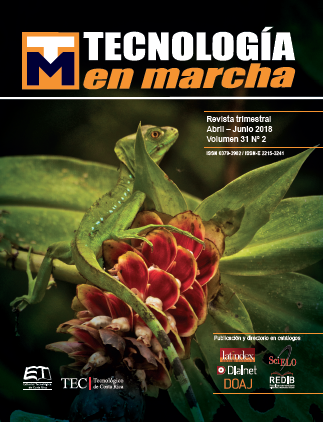Review: Hydrogen Embrittlement of Metals and Alloys in Combustion Engine
Main Article Content
Abstract
In order to address the oil dependency and depletion challenges, environmental impact of its usage and the current increasing transportation costs, an application of hydrogen enrichment of internal combustion engines (ICE) technique in vehicles is proposed. As a first step, a review is presented to study the hydrogen degradation effect on common materials that are used to build engines. This review will support a feasibility analysis to determine if automobile engine materials have the potential to use hydrogen enriched fuels.
The most relevant reviewed topics included in this article are: i) description of the currently used materials in combustion engine manufacturing; ii) new materials applied to hydrogen enriched engines; iii) hydrogen embrittlement mechanisms and classification; iv) embrittlement accelerating factors; and v) case studies involving hydrogen embrittlement.
It was found that specific conditions, such as pressure, temperature, material composition and hydrogen purity determine the ideal material to be used in a hydrogen enriched environment. Some of the reviewed researches propose the usage of high purity aluminum or titanium steel alloys, materials that could be applied in ICE manufacturing to withstand hydrogen embrittlement.
Article Details
Los autores conservan los derechos de autor y ceden a la revista el derecho de la primera publicación y pueda editarlo, reproducirlo, distribuirlo, exhibirlo y comunicarlo en el país y en el extranjero mediante medios impresos y electrónicos. Asimismo, asumen el compromiso sobre cualquier litigio o reclamación relacionada con derechos de propiedad intelectual, exonerando de responsabilidad a la Editorial Tecnológica de Costa Rica. Además, se establece que los autores pueden realizar otros acuerdos contractuales independientes y adicionales para la distribución no exclusiva de la versión del artículo publicado en esta revista (p. ej., incluirlo en un repositorio institucional o publicarlo en un libro) siempre que indiquen claramente que el trabajo se publicó por primera vez en esta revista.

